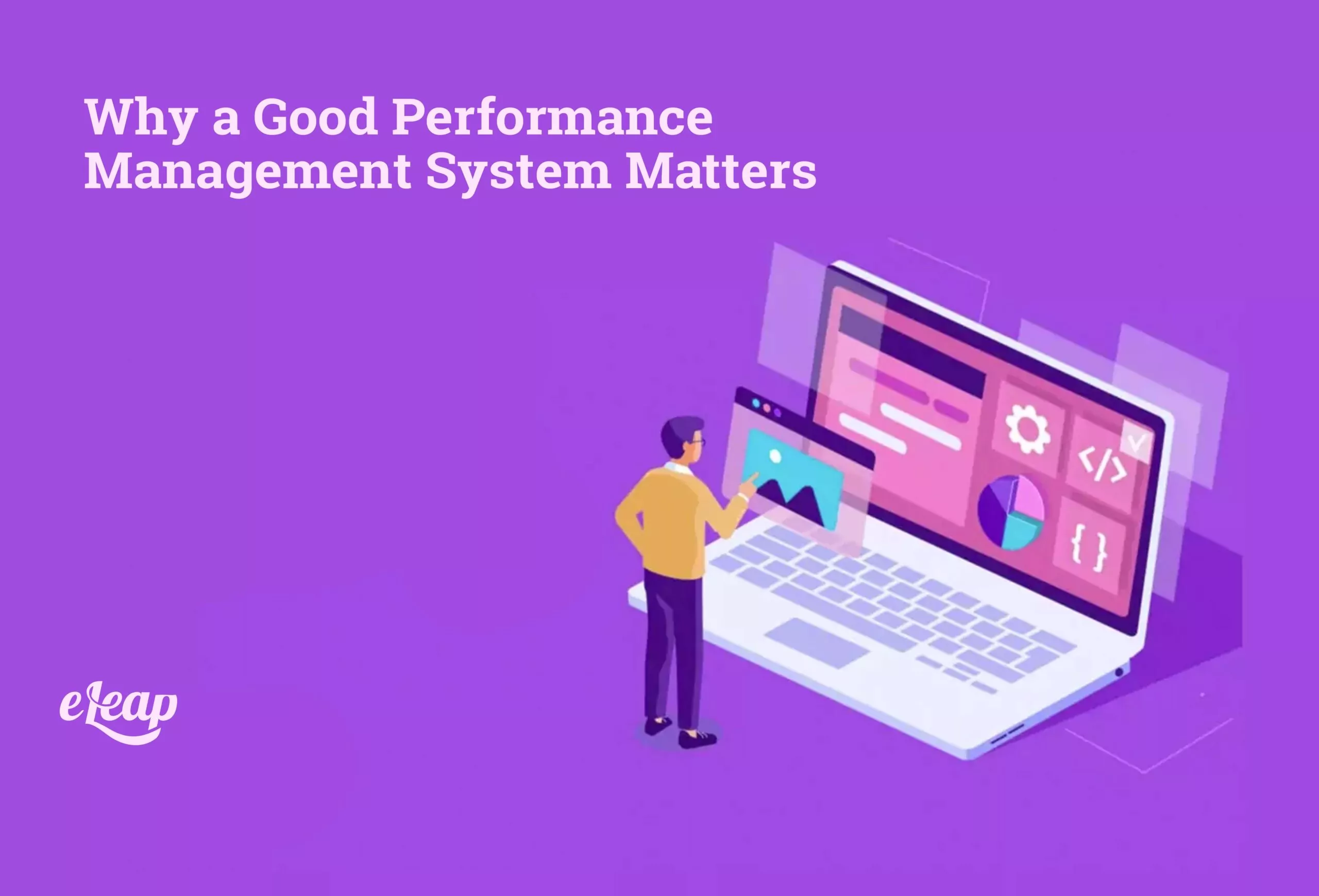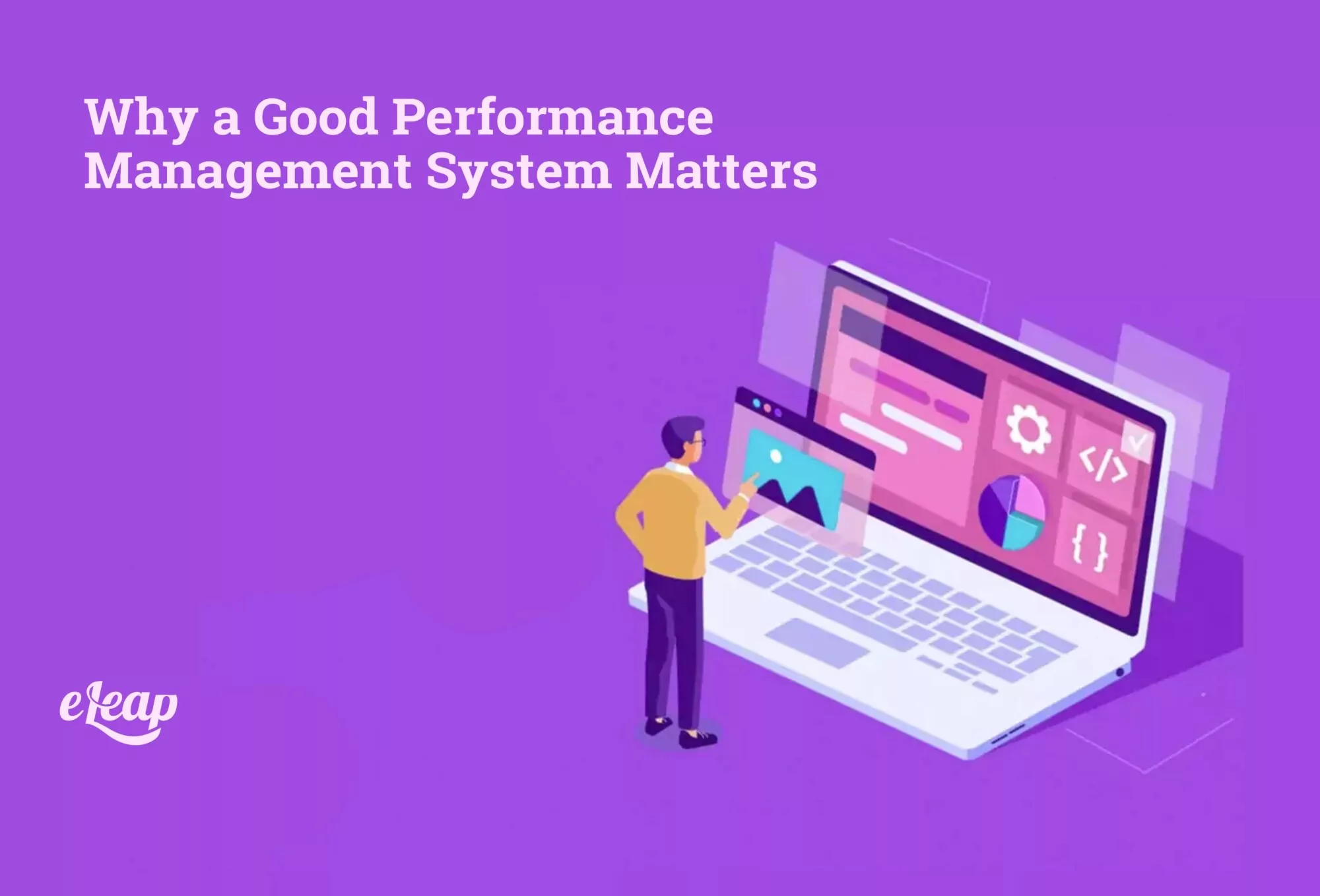Why a Good Performance Management System Matters

In order for an organization to be successful, employees need to be able to perform to the best of their abilities. Such performance requires good management, which is where a well-run performance management system is key. In addition to improving performance, a performance management system has other advantages. It is one of the best indicators of how efficiently your business is running, and it is also an indication of how satisfied your employees are with their jobs. It should be pretty obvious: if your employees are happy and motivated, then their performance will improve.
Don’t overlook how critical performance management can be. However, going about performance management incorrectly can actually do more harm than good. In order to understand how to encourage your employees to perform, you need to grasp the basics of good performance management.

How to Measure Performance
In order to coach employees to improve their performance, you need to know how to accurately measure it. To start with, put in place a communication system between employees and managers so that they can discuss performance. If there isn’t good communication surrounding performance throughout the organization, then systems will start to fail, and it will take a big blowout for issues to come to light. A key thing to remember is that performance management and the communication surrounding it are made much more efficient if a centralized system is in place that provides quick access to information, as well as providing HR with the ability to target and take action on performance results.
Developing and maintaining performance management systems requires a strong presence from human resources and leaders. To support employee engagement, there should be established indicators that will measure the change in performance. In order to make quick, better-informed decisions that can improve your organization’s overall performance, accurate information must be readily available. Accurate data is the key. When you have all the facts to support management of performance, you can implement change more easily. This is especially important if presenting findings to upper management. The ease of access to information and the ability to analyze and compare it will allow HR professionals and leaders to make more informed decisions on what to do next.
Focus on Employee Engagement
Let’s get one thing straight: Simply having a system and establishing measures is not enough. The results you expect won’t come unless employees are engaged. For this to happen, you have to understand individual circumstances, but perhaps more importantly, you have to come up with a fair process employees can understand, one that motivates your team and reveals opportunities for growth.
Engaging your team is one of the best ways to motivate them. Without engagement, you’ll have little grounds to stand on, as employees likely won’t care to take on board anything you try to teach or systems you attempt to put into place. Remember, access to and use of good data will help you to be fair and targeted when attempting to engage employees.
One of the first things to remember when engaging employees is the importance of ensuring you are setting realistic and functional goals. This will enable you to more easily measure performance, because you will feel confident that employees are actually able to meet the goals that you set. If employees feel like they can actually reach the goals discussed, they’re far more likely to engage and perform in the long run. Additionally, your employees will engage better with their performance appraisals if you examine their performance from an unbiased perspective.
When discussing goals and performance, you need to communicate clearly and concisely with your employees if you want them to understand you. You will be able to gain a better understanding of their performance this way and spot any issues you need to address. As you spend time discussing with your employees, you will have better indicators, which you can then work with your employees on to find a solution. So, performance requires engagement and communication, as well as clear-cut, realistic goal setting, but how else can performance be managed?
Well-Conducted Performance Appraisals Are Key
Performance appraisals that are comprehensive and well-conducted can provide valuable results that will help you to measure your employees’ performance. It is an effective way to keep employees motivated to do better, especially since their overall job satisfaction is linked to their performance. This will also help you identify any problems before they become costly or cause bigger issues.
If performance appraisals are to be taken seriously, they must be clear, concise, and attainable for the employee. Additionally, it’s critical that your employees are engaged before you move forward with performance appraisals. A disengaged employee is unlikely to take what is said in an appraisal seriously and will further struggle to apply what they are told.
Furthermore, this becomes a self-fulfilling prophecy, and if engagement is high and performance appraisals are done correctly, you’ll start to see a beneficial cycle. The better you are able to provide feedback through a performance appraisal, the more engaged your employees will be, skyrocketing engagement even further.
Having indicators of performance is imperative so problems can be fixed during an appraisal. By allowing your employees to improve, progress, and preparing them properly to receive feedback, you will create a healthy and productive workplace.
The performance of an organization can be tracked and improved if the system in place stimulates growth and improves employee engagement. Through communication with your employees on a regular basis and observing any problems that arise, you can identify issues and address them before employee performance declines. Without proper performance management techniques in place, it’s difficult for your organization and employees to continue to improve. Thus, it’s critical that HR and leaders are prepared and trained in the best ways to go about performance management for ultimate employee productivity and satisfaction.